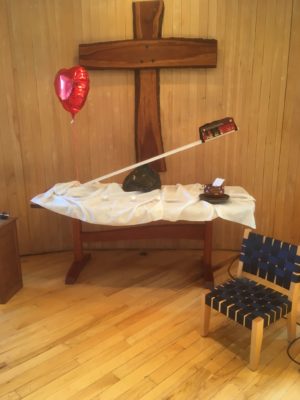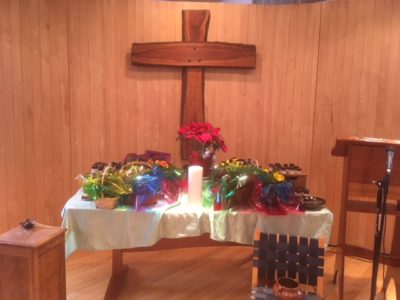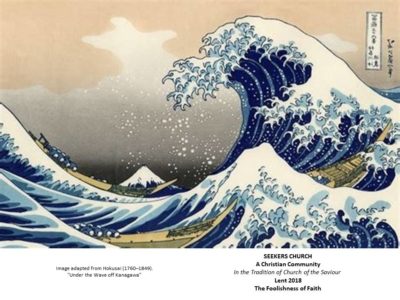Sermons
Seekers recognizes that any member of the community may be called upon by God to give us the Word, and thus we have an open pulpit with a different preacher each week. Sermons preached at Seekers, as well as sermons preached by Seekers at other churches or events, are posted here, beginning with the most recent.
Click here for an archive of our sermons.
Feel free to use what is helpful from these sermons. We only ask that when substantial portions are abstracted or used in a written work, please credit Seekers Church and the author, and cite the URL.
.wp-show-posts-columns#wpsp-4136 {margin-left: -2em; }.wp-show-posts-columns#wpsp-4136 .wp-show-posts-inner {margin: 0 0 2em 2em; } Last month, I presented the first in a series of sermons about the spiritual challenges of aging and what I’m learning from my students at the nursing home. That sermon addressed the spiritual challenge of feeling worthless, and the spiritual tools of acceptance and gratitude. I’ve been volunteering in nursing homes for over 14 years. Currently, I work as a volunteer chaplain at the Hebrew Home nursing facility in Rockville. For the last two years, I’ve been leading a Bible Study class for Christians there. These sermons are not about me – they’re about the people who live at the nursing home. It’s about them because they are role models for aging. Relationship over Rules. Love over Performance. In my Spirit Report for Holy Week I wrote the following: I feel unprepared for Easter. I feel like I am carrying around a lot of “burial clothes” and am not ready to emerge from my tomb. I am not certain what new life is emerging or whether I am really ready to have the uncertainty and discomfort of a “resurrection” intrude on my carefully crafted life. Resurrection seems like a lot of work. Being transformed is not easy. 50 years ago this week, Martin Luther King Jr. was assassinated in Memphis and the inner city of Washington DC erupted with pent-up rage. Police cordoned off the mayhem so it didn’t spread to white sections of the city, but whole neighborhoods were destroyed. In the Adams Morgan district, rioters spared the Potter’s House, which had been open since 1960. Church of the Saviour was one of the few integrated churches in the city, and after the riots, the Potter’s House became the locus for many efforts to address results of institutional racism along Columbia Road. Church of the Saviour was known for its many and varied missions. Seekers Church grew out of FLOC (For Love of Children), which was formed to close down Junior Village — an overcrowded dumping ground for black children whose parents could not take care of them. Our founders, Fred Taylor and Sonya Dyer, were actively involved. Fred was the executive director FLOC and Sonya, a leading volunteer. In some ways, the riots of 1968 and the mission of FLOC are stamped in our spiritual DNA. Many of the early members of Seekers were involved in some form of child advocacy, and within the CoS family, we had the reputation of being “the children’s church.” But over time, Sonya would identify our charism as ART and ADVOCACY, not one particular mission. You can see that in our altar, bulletins and conscious liturgy. We supported ministry in daily life, because so many Seekers were involved in advocacy. That made us different (or odd) within our family of faith. We didn’t quite belong. In our gospel reading, three women went to the tomb of Jesus, expecting to bathe his body with oil and spices before it began to decompose. Their encounter with the empty tomb and a bright angel, who told them “He is risen,” left them shaken. The text states “they said nothing to anyone, for they were afraid.” What if these three women had kept their silence forever? Had never told anyone what they saw and heard inside that empty tomb because they didn’t belong to the inner circle of disciples? Do you think we would we be celebrating Easter now? Ten Seekers presented a “reader’s theater” production of “I Witness” by Wanda Berry. The author descibes this play as “a group of 10 monologues that blend into a sort of choral speaking ending. Each inanimate object speaks out as a witness of Christ’s presence here on earth and His death. Each inanimate object (except the donkey) tells of the part they played and how they felt as they participated in their God-given assignments.” For the reading at Seekers, the play was edited to better represent an inclusive theology emphasizing love and forgiveness rather than substitutionary atonement and recognizing that God is beyond gender. Seekers tends to speak of Jesus as the fullest example of human response to God’s call on one’s life, seeing his life, death, and resurrection as the embodiment of God’s love for humankind. The original script may be found at http://www.dramatix.org.nz/scripts/easter-mainmenu-34/623-i-witnes Here at Seekers, growing old has emerged as a topic of great interest. Recently, I was talking about aging with a couple of other Seekers. We were discussing options when you can no longer drive. One person said, “technology can be a big help – for instance, you can order your groceries via Peapod.” I responded by asking, “What if you’ve lost your vision and can’t see the computer screen, or you’ve lost cognitive abilities and you can’t manage a computer?” “Well, at that point you’ll need full-time nursing care” my colleague replied. I wondered to myself what that mean. Did it mean, “at that point, it won’t matter“Spiritual Tools for Growing Old, Part 2” by Michele Frome
 April 15, 2018
April 15, 20183rd Sunday of Easter
“Relationship over Rules. Love over Performance.” by Brenda Seat
 April 8, 2018
April 8, 20182nd Sunday of Easter
Seekers Church 4-8-18
Brenda Seat
“What If?” by Marjory Bankson

April 1, 2018
Easter Sunday
“I Witness” — a dramatic reading for Palm/Passion Sunday
 March 25, 2018
March 25, 2018Palm/Passion Sunday
“Spiritual Tools for Growing Old, Part 1” by Michele Frome
 March 18, 2018
March 18, 2018Fifth Sunday in Lent